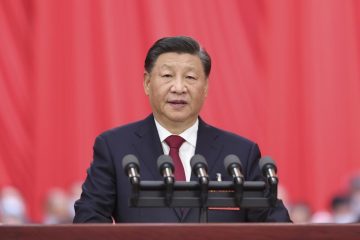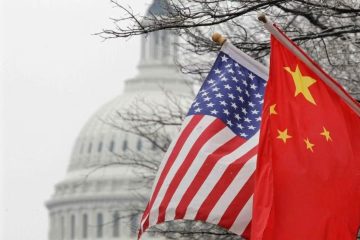China is winning with Reverse Brain Drain

A significant factor propelling the global AI competition is the fierce pursuit of the individuals who are developing it: Chinese talent. The most recent substantial expenditures in artificial intelligence are not directed towards advanced chips or data-center expansions, but rather towards individuals. A Stanford paper indicates that China perceives international experience not primarily as a brain drain, but rather as an opportunity for researchers to gain knowledge before returning to their homeland, particularly in the field of artificial intelligence.
The competition for AI talent has led Meta Platforms Inc. to reportedly extend sign-on bonuses amounting to $100 million in an effort to attract senior personnel from competing firms. It is described “as if someone has broken into our home and stolen something,” according to OpenAI’s chief research officer in a memo. The most recent casualty: Apple Inc., which has seen the departure of prominent executive Ruoming Pang to Meta. It is noteworthy that a significant number of the elite players that US technology giants are proudly announcing as additions to their teams hail from China. Among the 12 new recruits to the Meta Superintelligence Labs team, eight, including Pang, have graduated from universities on the mainland prior to embarking on careers overseas.
The significant influence they exert in the development of AI systems for its geopolitical competitor is unlikely to be overlooked by Beijing. In various technology sectors where employees possess a significant knowledge edge, the government has not hesitated to request their repatriation. Reports indicate that authorities have imposed travel restrictions on certain employees of DeepSeek. Rather than imposing restrictions on immigration, it is imperative for US policymakers to focus on attracting the most talented individuals from China and other regions, fostering a climate conducive to their long-term residency.
However, American business leaders ought not to presume that substantial salaries alone will secure victory in the global competition for talent. Researchers at Harvard University last month indicated that the volume of high-impact scientific publications demonstrates China’s dominance in “raw human capital for AI.” This facilitates the advancement of indigenous research, even in the face of US superiority in computing power and investment. While top workers may still exhibit a strong interest in pursuing financial opportunities abroad, this does not necessarily imply that a significant number will choose to remain domestically. In May, distinct researchers at Stanford University conducted an analysis of data pertaining to over 200 authors associated with DeepSeek’s technical papers. The firm’s success story is fundamentally one of homegrown talent, they found. Half of DeepSeek’s team has remained in China for both education and work, while those who ventured abroad ultimately returned to engage in AI development. This carries significant policy implications for the United States.
The Stanford paper indicated that China perceives international experience not primarily as a brain drain, but rather as an opportunity for researchers to gain knowledge before returning to their home country. The US “may be mistakenly assuming it has a permanent talent lead.” This observation is consistent with other data indicating that America is diminishing in its attractiveness as a destination for elite AI researchers. In 2022, merely 42 per cent of these individuals were employed in the US, a decline from 59 per cent in 2019. During that same period, China rapidly closed the gap, increasing its share from 11 percent to 28 percent. The Chinese government has been investing in AI laboratories and academic research as a component of its industrial policy. The efficacy of this investment remains ambiguous; however, it has facilitated the development of talent that subsequently contributed to advancements within private enterprises. One of DeepSeek’s foundational papers, for instance, was co-authored by researchers from Tsinghua University, Peking University, and Nanjing University. China has been cultivating an ecosystem of innovation that does not focus on the acquisition of individual star players.
Domestic firms exhibit a reduced capacity to allocate substantial resources for the purpose of attracting premier talent. According to one analysis, US private investment in AI was nearly 12 times greater than that of China. Earlier this year, state-backed news outlet the Global Times reported on the “high-paying job offers” from DeepSeek, which could amount to annual income of approximately 1.54 million yuan (just under $215,000). While it represents a considerable amount in urban China, it pales in comparison to the immediate wealth-generating numbers often cited in Silicon Valley. DeepSeek is currently engaged in an extensive recruitment campaign aimed at enticing overseas Chinese AI researchers to return to their homeland. The company has listed a series of positions on LinkedIn, a platform that lacks domestic usage. As my colleague Dave Lee has articulated, this matter extends beyond mere financial considerations; it is fundamentally about persuading workers that their contributions “will matter most in the history books.” DeepSeek appears to be targeting homesick Chinese talent with this pitch.
Ultimately, nearly fifty percent of the world’s leading AI researchers originate from China, in contrast to eighteen percent from the United States. While numerous individuals may be exploring prospects overseas, Beijing is exerting its full influence to persuade a portion to remain, particularly as the United States does not appear to extend a cordial invitation. The substantial sign-on bonuses being offered by Silicon Valley could potentially sway the competition for talent across borders; however, only time will reveal whether this strategy will secure a lasting advantage in the ongoing contest for skilled professionals.










